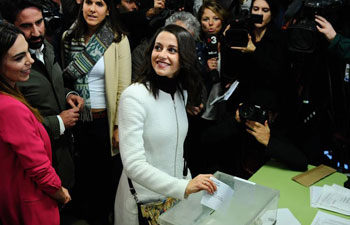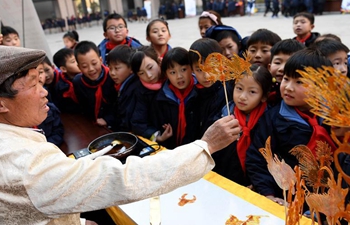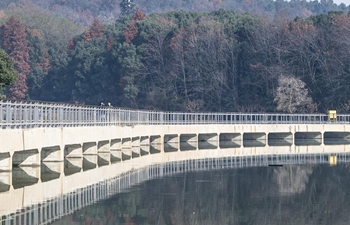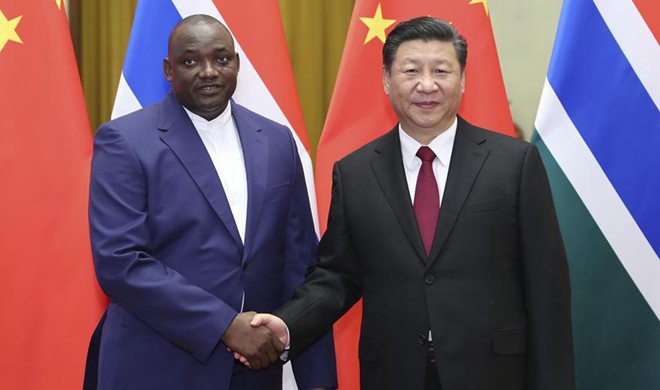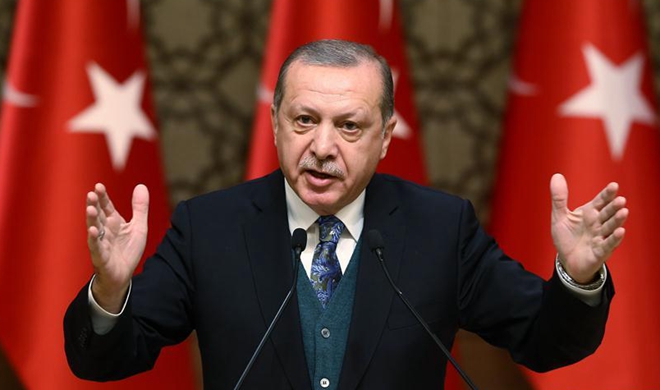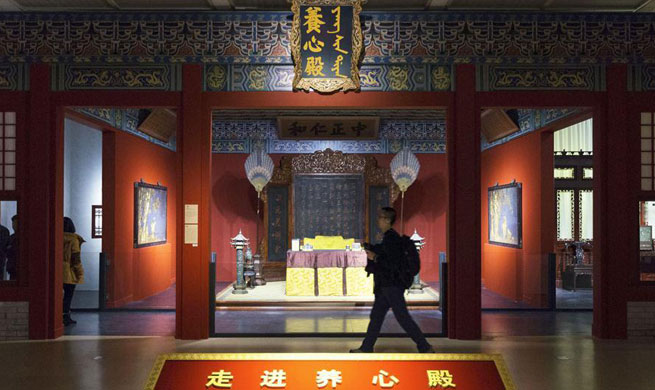SEOUL, Dec. 22 (Xinhua) -- South Korea held its first presidential by-election in May after President Park Geun-hye was impeached for the first time in the country's modern history over an influence-peddling scandal involving her long-time confidante.
The year 2017 started with a massive candlelit rally demanding ouster of the then embattled president. Angry people took to the streets every weekend as Choi Soon-sil, Park's decades-long friend, was found to have intervened in state affairs behind the scenes and pursue personal gains using her friend's presidential power.
The motion to impeach Park was passed through the National Assembly on Dec. 9, 2016. An independent counsel was named to look into the unprecedented case embroiling a sitting president, and the constitutional court began deliberating the impeachment bill.
Park had promised to be investigated by the special prosecutor, but she broke that promise citing various reasons unacceptable to ordinary people. Anti-Park rallies continued early this year, while supporters of Park held counter rallies near the candlelit demonstrations.
The constitutional court upheld the parliamentary impeachment bill on March 10, making the first female president of South Korea the first leader to be ousted while in office. Park was taken into custody weeks later, while her confidante was detained and stood trial.
Prosecutors identified Park and Choi as criminal accomplice, indicting them on multiple charges including bribery and abuse of power. Former senior presidential secretaries were arrested, and several former ministers stood trial for criminal charges.
Samsung Electronics Vice Chairman Lee Jae-yong was taken into custody and sentenced in August to five years in jail for offering bribes to Choi in return for receiving assistance to inherit management control of Samsung Group, the country's biggest family-controlled conglomerate, from his ailing father Chairman Lee Kun-hee.
Prosecutors asked a Seoul court to sentence Choi to 25 years in prison. The first verdict was scheduled to be handed down early next year. The impeached Park still stood trial, and prosecutors had yet to seek the quantum of sentence.
As the constitutional court approved Park's impeachment in March, the country's presidential by-election was held on May 9 for the first time in the country's history. Local media outlets called it "rose presidential election" as roses bloom in May. Without the impeachment, a regular presidential election should have been held in December.
All of the local media attentions were paid to then main opposition Democratic Party's primary as support for the conservative bloc tumbled with the conservative president's impeachment. Moon Jae-in won a landslide victory in the primary and was elected the country's 19th president in the May 9 by-election.
President Moon was sworn in as president the following day without a 2-month transition period as he was elected in the by-election. The new president declared the elimination of 'oil evils,' and prosecutors launched a broad range of investigation into irregularities conducted in the past decade under the conservative governments.
Documents were found that the country's intelligence agency and the military's cyber command meddled in political affairs by ordering officials to conduct online smear campaign in the 2012 presidential election against then powerful opposition candidate Moon, who was defeated by Park by a narrow margin.
Prosecutors were also investigating into a variety of illegalities such as former spy agency chiefs' offer of illegal fund to the impeached Park in her office, illegal surveillance of liberal civilians and politicians, the attempt to standardize history textbooks and unfair labor practices in local broadcaster MBC.





